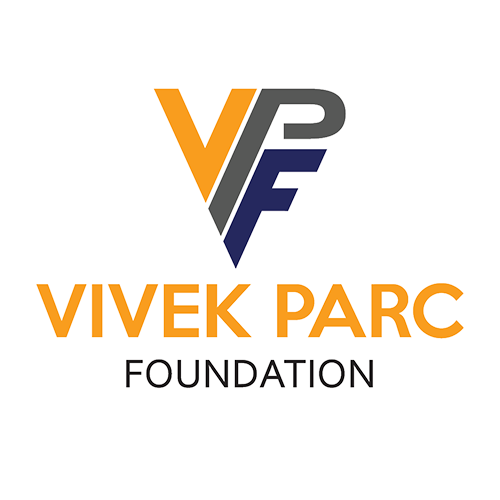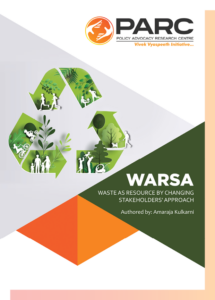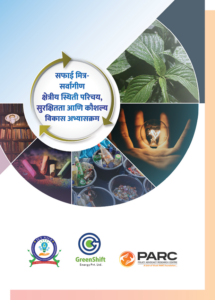Description:
Division engages with stakeholders working in Environment and Sustainable Development Areas to identify the prominent gaps and provide problem-specific solutions in order to develop strategies & create change in the sector through coherent mechanisms like research and advocacy.

Verticals / Environment and Sustainable Development
Vision: Pioneering Tomorrow’s Sustainable Paradigm: Redefining the Landscape through Innovative Thinking, Visionary Insight, and Transformative Interventions, to Shape India in Environmental Harmony and Prosperity.
Mission: The mission of the Environment and Sustainable Development Division is to drive positive change by designing and implementing impactful interventions that prioritize environmental health and sustainable development. Through rigorous research, collaborative partnerships, and effective advocacy, we aim to influence policies that promote ecological balance and economic well-being. We are dedicated to fostering dialogue, generating innovative solutions, and leveraging comprehensive data to develop strategies that empower communities and organizations to actively participate in sustainable practices
Key Functions of the Environment and Sustainable Development Division
Research and Policy Advocacy:
- Delivering research-based insights
- Actionable measures and suggestions
Impact Assessment and Improvement:
- Assessing the effectiveness of environmental initiatives
- Evaluating the ecological and socio-economic impact of changes
- Designing recommendations for continuous improvement.
Stakeholder Collaboration:
- Establishing collaborative relationships with key stakeholders, including government bodies, NGOs, businesses, and local communities, to drive holistic and sustainable development
- Facilitating partnerships that promote environmental conservation, community engagement, and sustainable business practices.
Capacity Building for Sustainable Practices:
- Empowering human capital by providing training and capacity-building programs focused on sustainable practices.
- Enhancing skill sets to boost employability, entrepreneurship, and institutional efficiency in the context of environmental sustainability.
Solution-Oriented Advocacy:
- Offering solution-oriented and constructive methods of advocacy to catalyze positive environmental change.
- Presenting well-thought-out strategies that address environmental challenges and contribute to overall improvement.
Scope of Work for Environment and Sustainable Development Division
- Research-based Policy Creation, Interventions, and Analysis for Environmental Sustainability
- Catalyzing Investment and Enabling Socio-Economic Development.
- Training and Capacity Building for a Range of Stakeholders in Sustainable Practices.
- Supporting the Development of Circular Economy Initiatives and Reverse Logistics Linkages.
- Providing Need-Based Technological Interventions for Environmental Conservation
- Impact Assessment of Environmental Schemes and Sustainable Development Projects.
Divisional Strengths
- Sound Understanding of Environmental Realities on the Ground.
- Strong Organic Networks within the Environmental and Sustainable Development Community.
- Robust Stakeholder Engagement for Effective Collaboration.
- Multi-level Strategic Thinking for Holistic Sustainability Solutions.
- Proactive Problem-Solving in the Face of Environmental Challenges.
- Commitment to Creating Sustainable and Impactful Change across Various Domains.
Systems Thinking Visualised
In today’s interconnected world, tackling environmental and sustainability challenges demands more than linear solutions — it requires a systems thinking approach. This resource has been developed as a strategic visualisation tool to support bureaucrats, public policy professionals, and institutional planners in understanding the interdependencies, feedback loops, and collaborative pathways that shape sustainable development outcomes.
Each Kumu map presented here offers a structured lens to examine complex issues — whether it’s resource flows, institutional roles, behavioural patterns, or multi-stakeholder interventions. By mapping relationships rather than just components, these visuals help uncover leverage points, streamline coordination across departments, and surface blind spots that conventional approaches may miss.
This resource is not just informational — it is strategic. It encourages users to move beyond silos, identify unintended consequences, and engage with the systemic nature of the challenges we aim to address. Whether used for policy formulation, programme design, or institutional collaboration, the maps provide a navigable framework to align efforts with circularity, equity, and long-term resilience.
We invite you to explore these Kumu maps as living documents — tools that inform decision-making, build shared understanding, and foster a culture of systems-aware governance.
1. Waste System Informal Stakeholder Landscape – https://embed.kumu.io/b5c498f8db4f9e7d7e32774aa4478d9f
2. Reverse Logistics System Thinking
https://embed.kumu.io/e82e52a1fb80b82470c9510f38cb69b8
3. Food Waste, Food Loss & Missing System Linkages https://embed.kumu.io/98363d6428eb181da2923f51c0e9efdb
4. Solid Waste Management Missing Interlinkages https://embed.kumu.io/c713f5a6e8e4493b53157c0b1f5033d8
5. Solid Waste Management Compliance Barriers https://embed.kumu.io/3da60cd5e91c33aa419197895acf81c9
6. Engagement Strategies in the Solid Waste Management Sector https://embed.kumu.io/a6a63145897cfadd0bda91bcb759c70b
Research and Publications of Division
Services Offered
Our division delivers evidence-driven, people-centric solutions across environmental planning, policy implementation, and ground-level interventions. We work at the intersection of governance, research, and citizen systems with a focus on circular economy, sanitation, and climate resilience.
-
Comprehensive Assessment & Characterisation of Plastic Waste As Per CPCB SOP June 2024
Flagship Work: Nashik MPCB Plastic Waste Characterization Study -
Curriculum Development & Capacity Building for Urban Workforce
Flagship Work: Safai Mitra- Sector Orientation, Safety & Skill Development Course -
Policy Research & Advocacy
Flagship Work: Policy Partner for ICEF 2025 with ICCE – 10 post-event policy briefs - Implementation Support for ULBs
- Toolkit Development & Knowledge Products
- Urban Pilot Projects & Innovation


